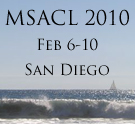| Qualitative and Quantitative Assessment of B-type Natriuretic Peptide (BNP) in Patients with Chronic Heart Failure Using Sensitive MSIA Technology |
| Wed 3:30 PM - Track 1: New Advances |
Eric E. Niederkofler
Intrinsic Bioprobes |
|
*Eric E. Niederkofler, *Urban A. Kiernan, #Jessica O'Rear, #N. Stephen Pollitt, #Ute Schellenberger #Andy Protter, *Randall W. Nelson,
*Intrinsic Bioprobes Inc., Tempe AZ
#Scios Inc., Freemont CA |
|
|
B-type natriuretic peptide (BNP) is a cardiac hormone which is elevated under pathological conditions leading to chronic heart failure (CHF). It is produced mainly in the cardiac myocytes where it is synthesized as proBNP(1-108) and is further processed into N-terminal Nt-proBNP(1-76) and the active C-terminal 32 amino acid form BNP(1-32). High circulating BNP levels as measured in various commercial diagnostic assays correlate well with the severity of CHF. Despite high hormone concentrations the cardiovascular and renal effects of BNP are blunted in patients with CHF. Posttranslational modification of BNP which renders the hormone inactive is a logical explanation for this natriuretic peptide paradox. Existing commercial immunoassays are non-specific and unable to provide detailed molecular information. In addition, they often times cannot distinguish between proBNP(1-108) and BNP(1-32) because of common epitopes in both BNP forms and assay design.
We have therefore developed a sensitive and quantitative mass spectrometry based immunoassay (MSIA) to analyze endogenous forms of BNP in plasma. A LOD of <10 pg/ml was achieved using 0.5 ml of plasma. Ex vivo spike experiments detailed rapid proteolytic processing of BNP(1-32) to BNP(3-32), implicating dipeptidyl peptidase activities as previously suggested. However, further investigations revealed the formation of up to five additional (previously unknown) products of BNP. Studies of protease inhibitors to stop hydrolysis after blood collection showed that commonly used concentrations are insufficient. Conditions to preserve the molecular integrity of BNP were established and were used for the prospective collection of plasma samples from CHF patients. In 11 of 12 HF patients BNP(1-32) was detectable, ranging from 25 to 43 pg/mL. Several degraded forms of BNP were also detected at similarly low levels. In contrast, parallel measurements of immunoreactive BNP using the Biosite assay ranged from 900 to 5000 pg/ml.
A detailed characterization of the molecular heterogeneity of BNP forms will be presented, as well as a discussion of the comparison between results from the Biosite assay and those of our MSIA. Very low levels of biologically active BNP in combination with high levels of unprocessed proBNP with low bioactivity might explain the apparent blunted activity of the endogenous natriuretic peptides in the setting of CHF. |
|
|
| Email: eniederkofler@intrinsicbio.com |



